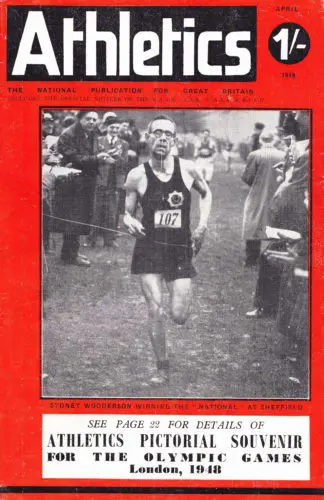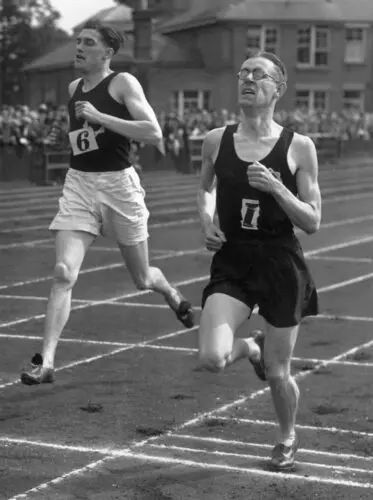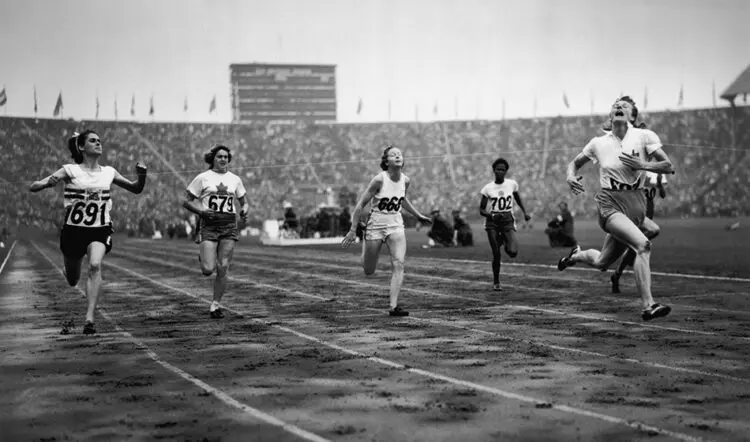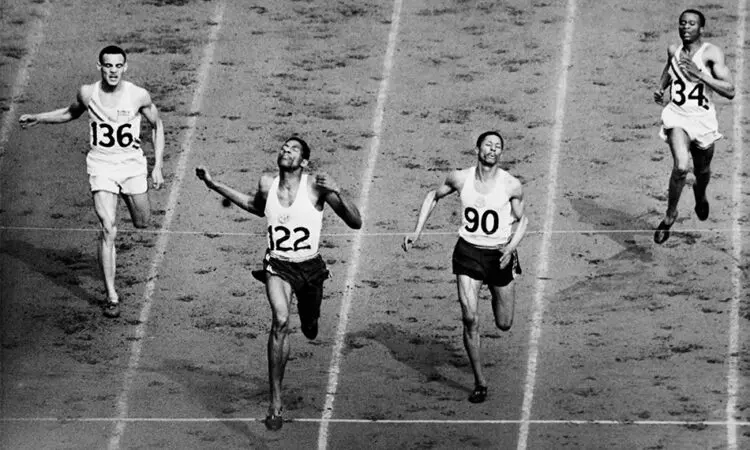To mark the 80th anniversary of AW, we look back at the sport's most memorable events, starting with the first few years of the magazine's life in the post-war era
Wooderson’s powers of recovery
Sydney Wooderson's athletics achievements were massive and, but for World War II, it is very likely he would have won Olympic gold at the 1940 and 1944 Games. He might even have been the first to break four minutes for the mile.
The 1938 European 1500m champion did become an Olympian, representing Britain in Berlin in 1936, but injured himself just before the Games and was unable to even finish his heat. He set world records in 1937, 1938 and 1939 at the mile (4:06.4), half-mile (1:48.4), 800m (1:48.4).

The Blackheath Harrier’s best remembered performance came in August 1945 when a sport-starved public crammed into London’s White City Stadium to watch the man who had recently recovered from rheumatic fever and been told he would never run again race against Sweden’s Arne Andersson. In front of a crowd that included a teenage Roger Bannister, Wooderson improved his mile time to a British and Commonwealth record of 4:04.2 in coming second.
He moved up in distance and won 5000m gold at the 1946 European Championships in Oslo. His time of 14:08.6 was 23 seconds inside the British record and the second-fastest in history.

Blankers-Koen’s brilliance
Dismissed by the British athletes’ team manager Jack Crump that she was “too old to make the grade”. The letters she received that stressed that “housekeeping rather than running in shorts in a stadium” should take priority. Fanny Blankers Koen arrived at the 1948 Olympics in London with a point or two to prove.
Already a world record-holder in six events, the 30-year-old mother of two set about creating history. This was an era when it was not seen as the done thing for women to engage in serious sporting competition. The activities were viewed as too masculine, the female body too fragile to handle such an undertaking.
Of the 4073 participants in London, just 393 were women and there were just nine track and field events in which they could compete.

It was virtually unheard of for a woman to compete again after becoming a mother and it’s plain to see there were a lot of stereotypes ready to be undermined, a number of barriers to be overcome and plenty of myths to be busted.
Blankers-Koen ultimately turned perceived “wisdom” on its head – not by winning one gold medal, but four. Over the span of seven remarkable days at Wembley Stadium she stood atop the podium for winning the 100m, 80m hurdles, 200m and 4x100m relay.
“Too old was I?” she said. “I would show them.”
Wint is first for Jamaica
Given the flood of Jamaican success on the track down the years, it’s hard to imagine a time when the nation didn’t have an Olympic champion. It was Arthur Wint who set the ball rolling by becoming the first. Having won the 800m at the 1938 Central American Games, his athletics career was halted by the war, during which he served in active combat with the Royal Air Force.
The London Olympics were the first in which Jamaica were competing as an independent nation and Wint’s 400m victory, beating his team-mate Herb McKenley, saw him write a very special piece of history.

McKenley magnificent
He might have lost out on Olympic glory to his fellow Jamaican Arthur Wint in London but across 1947 and 1948 Herb McKenley set the world record for the individual one lap (400m / 440yds) three times. He was the first athlete to run under 46 seconds for 400m, clocking 45.9 in Milwaukee in the lead-up to the London Games. He is the only man to have reached the Olympic 100m, 200m and 400m finals.
Gaston goes for it
Gaston Reiff was the first Belgian to win an Olympic track and field gold when he narrowly defeated Emil Zatopek over 5000m at the 1948 Games. He achieved another landmark a year later, however, by becoming the first athlete to break eight minutes for 3000m, by running 7:58.8 and eclipsing the world record of 8:01.2 which had been set by Sweden’s Gunder Hägg in 1942.
Did you know?
Starting blocks appeared at the Olympics for the first time in 1948. Competitors previously had to dig footholds in the dirt track.
See the August issue of AW magazine for our complete feature on the 80 greatest athletics moments.

